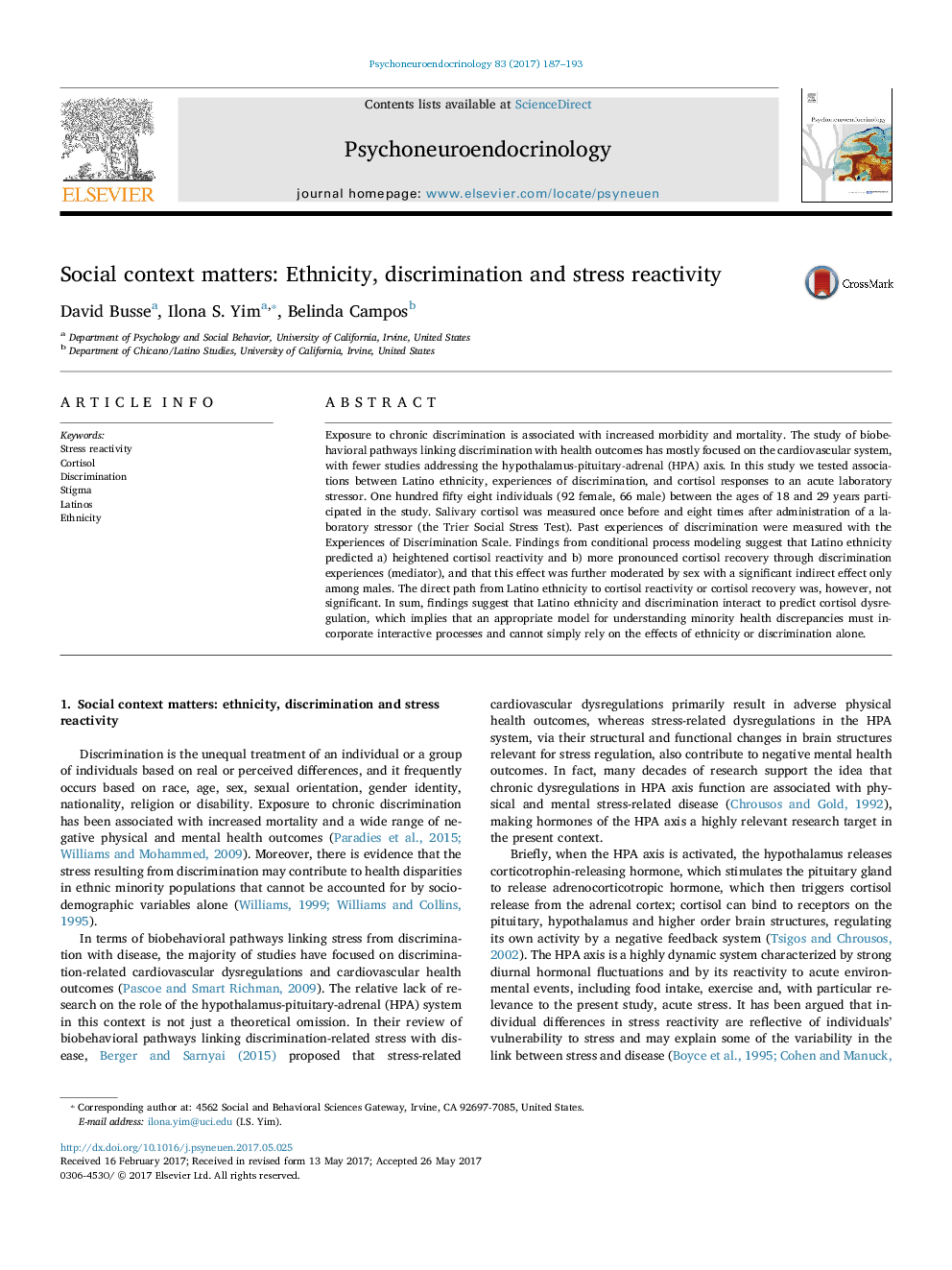ترجمه فارسی عنوان مقاله
مسائل مربوط به مسائل اجتماعی: قومیت، تبعیض و واکنش پذیری استرس
عنوان انگلیسی
Social context matters: Ethnicity, discrimination and stress reactivity
| کد مقاله | سال انتشار | تعداد صفحات مقاله انگلیسی |
|---|---|---|
| 121364 | 2017 | 7 صفحه PDF |
منبع

Publisher : Elsevier - Science Direct (الزویر - ساینس دایرکت)
Journal : Psychoneuroendocrinology, Volume 83, September 2017, Pages 187-193
ترجمه کلمات کلیدی
واکنش پذیری استرس کورتیزول، تبعیض استقامت، لاتینا قومیت،
کلمات کلیدی انگلیسی
Stress reactivity; Cortisol; Discrimination; Stigma; Latinos; Ethnicity;

